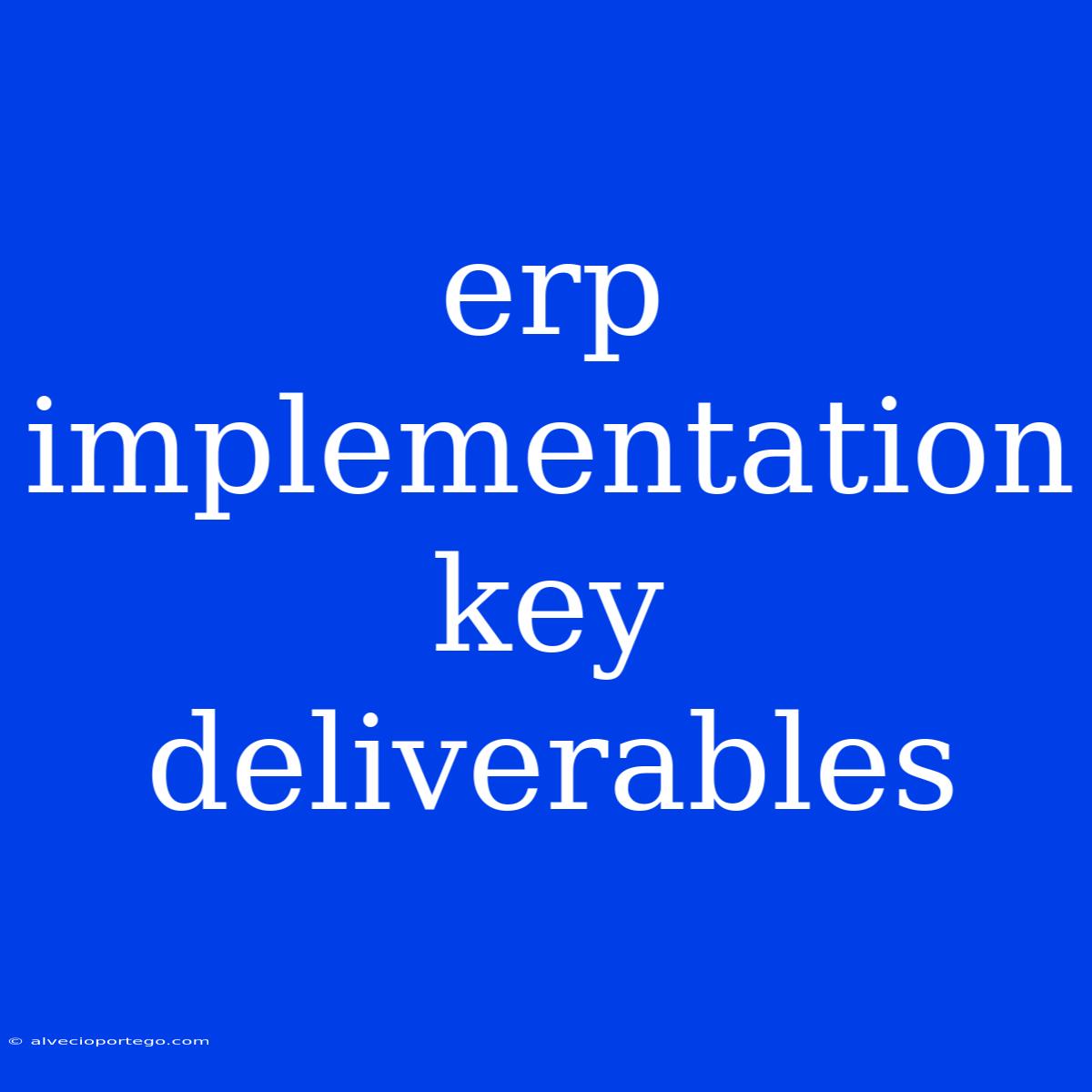ERP Implementation: Key Deliverables for Success
An ERP implementation is a major undertaking for any organization. It involves a significant investment of time, resources, and effort. To ensure successful implementation, it's essential to clearly define and track key deliverables throughout the process.
Here's a breakdown of the key deliverables that will guide your ERP journey towards a successful outcome:
1. Project Scope & Requirements Definition:
- Project Charter: A formal document outlining the project goals, objectives, stakeholders, timelines, and budget.
- Business Requirements Document (BRD): This document captures the specific business needs and processes that the ERP system will support. It should include detailed descriptions of the current processes, desired functionalities, and any integrations required.
- Functional Requirements Document (FRD): This document translates the BRD into a detailed specification of the ERP system's functionality. It outlines the system's features, screens, reports, workflows, and data structures.
- Technical Specifications: These documents specify the technical requirements for the ERP system, including hardware, software, network infrastructure, and database requirements.
2. System Selection & Configuration:
- RFP/RFI Process: A structured process for soliciting proposals and evaluating potential ERP vendors.
- Vendor Selection: A thorough assessment of the shortlisted vendors, taking into account their experience, industry expertise, solution capabilities, and pricing.
- ERP System Configuration: Detailed customization of the ERP system to meet the specific needs of the organization. This may involve modifying modules, configuring workflows, and tailoring user interfaces.
- Data Migration Plan: A comprehensive plan for migrating existing data from legacy systems to the new ERP system, ensuring data integrity and accuracy.
3. Implementation & Training:
- System Integration: Integrating the ERP system with existing systems and applications, such as CRM, accounting, and warehouse management systems.
- User Training: Developing and delivering comprehensive training programs for end-users, covering system functionalities, best practices, and troubleshooting.
- Go-Live Plan: A detailed plan for launching the new ERP system, including testing procedures, communication strategies, and support protocols.
4. Post-Implementation Support:
- System Support & Maintenance: Ensuring ongoing system support and maintenance, including bug fixes, system updates, and user assistance.
- Performance Monitoring & Optimization: Regularly monitoring the ERP system's performance, identifying bottlenecks, and implementing optimization measures.
- Continuous Improvement: Establishing a framework for ongoing system enhancements and improvements, based on user feedback and business requirements.
5. Key Metrics & Success Measures:
- ROI Analysis: Measuring the return on investment for the ERP implementation, taking into account cost savings, efficiency gains, and improved business outcomes.
- User Adoption & Satisfaction: Tracking user adoption rates and measuring user satisfaction levels with the new ERP system.
- Process Improvement & Automation: Measuring the impact of the ERP system on process improvements, automation levels, and operational efficiency.
- Business Outcomes & Key Performance Indicators (KPIs): Monitoring the impact of the ERP system on key business outcomes, such as revenue growth, profit margins, and customer satisfaction.
Conclusion:
By clearly defining and tracking these key deliverables, organizations can significantly enhance their chances of achieving a successful ERP implementation. Effective planning, communication, and collaboration are crucial throughout the process to ensure that the new ERP system delivers the expected benefits and drives long-term success.

